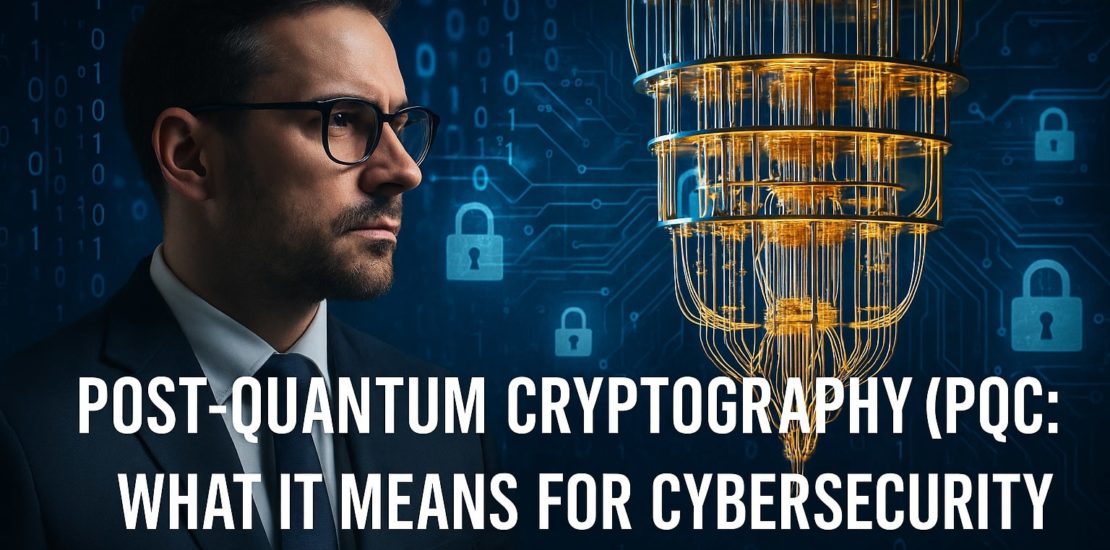Post-Quantum Cryptography (PQC): What It Means for Cybersecurity in 2025
- May 6, 2025
- Posted by: Gradeon
- Categories: Digital Services, Consulting, Cyber Security

Quantum computing is no longer a distant dream—it’s becoming a fast-approaching reality. While this technology promises breakthroughs in science, finance, and AI, it also poses a serious risk to cybersecurity. The biggest threat? It could break the encryption methods we use today. This is where Post-Quantum Cryptography (PQC) comes into play. PQC is the next generation of encryption designed to stand strong—even against powerful quantum computers.
In 2025, cyber security consultancies across the UK are playing a critical role in helping businesses understand and implement PQC to protect sensitive data for the long haul.
What Is Post-Quantum Cryptography (PQC)?
PQC refers to encryption algorithms that are designed to resist attacks from quantum computers. These new algorithms are being developed to replace the ones we use today, such as RSA, DSA, and ECC, which could be cracked by quantum machines.
Quantum computers can solve problems that classical computers cannot. This includes the ability to factor large numbers—something modern encryption relies on to stay secure. A quantum machine could break this encryption in minutes, making PQC essential for long-term data security.
Why Is PQC Important in 2025?
Although large-scale quantum computers aren’t fully functional yet, they are progressing quickly. The “harvest now, decrypt later” threat is very real. This means cybercriminals can steal encrypted data today and wait until quantum technology is available to decode it.
In 2025, businesses can’t afford to wait. Moving toward PQC now means you’re preparing for the future and protecting sensitive data from long-term exposure.
How Cyber Security Consultancies Are Leading the PQC Transition
1. Assessing Quantum Vulnerabilities
Consultancies begin by reviewing an organisation’s existing encryption. They identify which systems use outdated algorithms and assess the risk if these were to be broken by quantum computing.
2. Recommending Suitable PQC Algorithms
The National Institute of Standards and Technology (NIST) has selected a set of PQC algorithms. Consultancies help clients choose the best fit based on performance, compatibility, and security needs.
Popular candidates include:
- CRYSTALS-Kyber (for key exchange)
- CRYSTALS-Dilithium (for digital signatures)
- FALCON
- SPHINCS+
3. Planning a Gradual Transition
Switching to Post-Quantum Cryptography isn’t something that happens overnight. Cyber security consultancies help businesses create a step-by-step roadmap. This includes:
- Prioritising which systems need upgrading first
- Running pilot tests in low-risk environments
- Training internal teams on new cryptographic protocols
- Setting clear milestones and timelines for the full rollout
A phased approach helps minimise disruptions while still ensuring long-term protection.
4. Ensuring Compatibility with Existing Systems
One of the biggest challenges with PQC is making sure it works with current technology stacks. Many legacy systems were built with traditional encryption in mind.
Consultancies offer the technical expertise to integrate PQC without breaking functionality. This may involve:
- Updating APIs and backend systems
- Testing secure communications between devices
- Avoiding performance slowdowns due to heavier encryption methods
By doing this right, businesses stay secure without sacrificing user experience.
5. Staying Compliant with Regulations
Data protection laws are evolving to address quantum risks. For example, industries handling financial, health, or government data may soon face mandatory PQC standards.
Consultancies help organisations:
- Monitor regulatory changes from bodies like NCSC (UK), NIST (USA), and ENISA (EU)
- Update security policies and documentation
- Ensure encryption standards meet future legal requirements
This not only avoids fines but builds trust with clients and stakeholders.
Challenges in Adopting PQC
While the benefits are clear, there are still hurdles to overcome:
- Lack of standards: PQC is still developing, and global standards are in progress. Businesses need to adopt with flexibility.
- Performance trade-offs: Some PQC algorithms are slower or use more memory than traditional ones.
- Awareness gap: Many organisations are still unaware of quantum risks or believe they’re far in the future.
Cyber security consultancies help close these gaps by offering education, tools, and tailored strategies.
The UK’s Role in Driving PQC Adoption
The UK government recognises quantum risk as a national security issue. Through initiatives like UK Quantum, funding and partnerships are being provided to accelerate PQC research and implementation.
Consultancies in the UK are well-positioned to align private sector security efforts with government-backed strategies. They act as the bridge between emerging tech and real-world applications for UK businesses.
Conclusion
In 2025, preparing for quantum threats is not optional—it’s essential. Post-Quantum Cryptography is the foundation of this new security era, offering protection against the power of tomorrow’s quantum computers.
Cyber security consultancies are leading the charge, guiding businesses through the challenges of adoption and helping them stay ahead of the curve. From risk assessments to seamless integration and compliance, their role is more important than ever.
By embracing PQC now, UK organisations can future-proof their systems, protect sensitive data, and stay resilient in the face of fast-evolving cyber threats.
